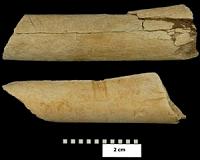| . |  |
. |
Columbus OH (SPX) Aug 19, 2010 Growing up without siblings doesn't seem to be a disadvantage for teenagers when it comes to social skills, new research suggests. A study of more than 13,000 middle and high school students across the country found that "only children" were selected as friends by their schoolmates just as often as were peers who grew up with brothers and sisters. "I don't think anyone has to be concerned that if you don't have siblings, you won't learn the social skills you need to get along with other students in high school," said Donna Bobbitt-Zeher, co-author of the study and assistant professor of sociology at Ohio State University's Marion campus. Bobbitt-Zeher conducted the study with Douglas Downey, professor of sociology at Ohio State. They presented their research Aug. 16 in Atlanta at the annual meeting of the American Sociological Association. The concern that a lack of siblings might hurt children's social skills has become more significant in recent years, Bobbitt-Zeher said. "As family sizes get smaller in industrialized countries, there is concern about what it might mean for society as more children grow up without brothers and sisters," she said. "The fear is that they may be losing something by not learning social skills through interacting with siblings." In fact, a 2004 study by this study's co-author, Douglas Downey, did find that children without siblings showed poorer social skills in kindergarten compared with those who had at least one sibling. This new study was designed to see if that advantage to having siblings persists as children become adolescents. Data from the study came from the National Study of Adolescent Health (ADD Health), which interviewed students in grades 7 through 12 at more than 100 schools nationwide during the 1994-95 academic year. ADD Health used an innovative way to examine friendship among these students: each student was given a roster of all students at their school, and was asked to identify up to five male and five female friends. "This allows us to consider how popular a student is by counting how many times peers identified him or her as a friend," Bobbitt-Zeher said. Overall, students in the study were nominated by an average of five other schoolmates as a friend. There were no significant differences in that number between those who had siblings, and those who had none. The researchers examined a wide variety of situations and still found no difference. The number of siblings a teen had didn't matter, and it didn't matter if those siblings were brothers, sisters or some combination, or if they were stepsiblings, half-siblings or adopted siblings. "In every combination we tested, siblings had no impact on how popular a student was among peers," she said. There is also a concern that parents who have large families are somehow different than other parents, and this may influence how popular their children are. So the researchers took into account a wide variety of other factors, including socioeconomic status, parents' age, race, and whether a teen lives with both biological parents or not. None of these factors changed the relationship between number of siblings and social skills. Why did this study find no effect of siblings on social skills, while Downey's earlier study of kindergarteners did? Bobbitt-Zeher noted that the two studies had different methods for estimating social skills, which may have played a role. The earlier study of kindergarteners was based on teacher ratings of social skills, while the teen study used friendship nominations by peers. But more importantly, Bobbitt-Zeher said she believes that children learn a lot about getting along with others between kindergarten and high school. "Kids interact in school, they're participating in extracurricular activities, and they're socializing in and out of school," she said. "Anyone who didn't have that peer interaction at home with siblings gets a lot of opportunities to develop social skills as they go through school."
Share This Article With Planet Earth
Related Links Ohio State University's Marion campus All About Human Beings and How We Got To Be Here
 Oldest Evidence Of Stone Tool Use And Meat-Eating Among Human Ancestors
Oldest Evidence Of Stone Tool Use And Meat-Eating Among Human AncestorsSan Francisco CA (SPX) Aug 16, 2010 The evolutionary stories of the Swiss Army Knife and the Big Mac just got a lot longer. An international team of scientists led by Dr. Zeresenay Alemseged from the California Academy of Sciences has discovered evidence that human ancestors were using stone tools and consuming meat from large mammals nearly a million years earlier than previously documented. While working in the Afar Region ... read more |
|
| The content herein, unless otherwise known to be public domain, are Copyright 1995-2010 - SpaceDaily. AFP and UPI Wire Stories are copyright Agence France-Presse and United Press International. ESA Portal Reports are copyright European Space Agency. All NASA sourced material is public domain. Additional copyrights may apply in whole or part to other bona fide parties. Advertising does not imply endorsement,agreement or approval of any opinions, statements or information provided by SpaceDaily on any Web page published or hosted by SpaceDaily. Privacy Statement |